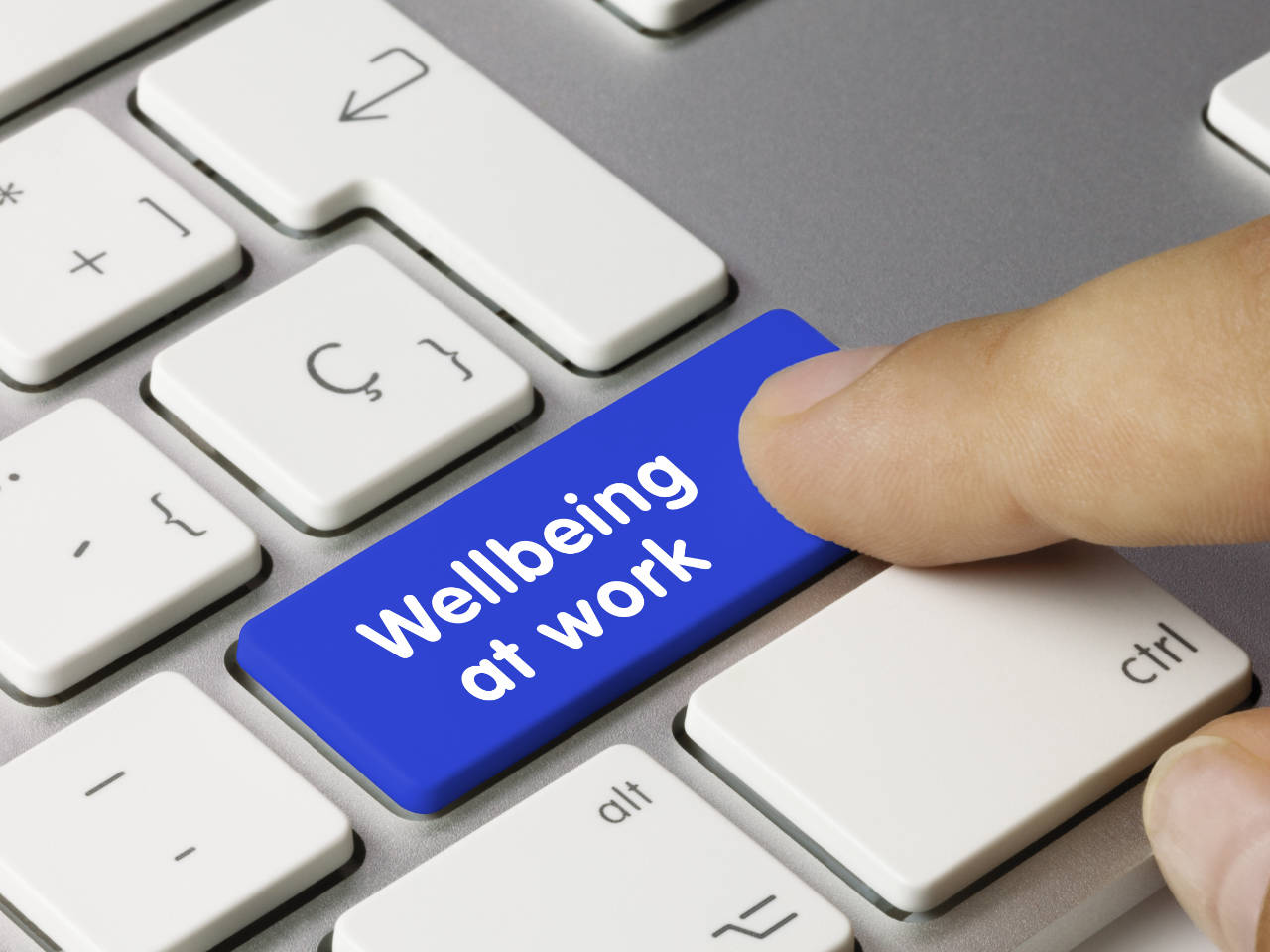
Whatever your organisation or industry, it’s vital to maintain the wellbeing of employees, especially as workers have faced several years of disruption, home working and lockdown restrictions as a result of the Covid-19 pandemic. As employees return to work premises, it pays to understand some of the key workplace wellbeing trends and challenges that should be on your radar for the year ahead.
You can listen to an audio version of this blog here:
Employers must have procedures and policies in place to protect the health and wellbeing of their employees in the workplace. But with a global pandemic and remote working dominating the past two years, it’s worth assessing whether existing policies and practices are in line with employee needs and employer responsibilities.
The post-Covid world of work may already be feeling the effects of changing employee attitudes to wellbeing and the desire for a better work/life balance. Because of this, organisations may find they have new priorities and opportunities to engage employee learning, such as virtual health and safety training.
We’ve identified five workplace wellbeing challenges you should keep an eye on in the year ahead.
Support employee wellbeing and mental health at work with our IOSH Approved Mental Health and Me course and help individuals develop strategies and self-care tips, as well as discover the importance of talking and sharing their experiences.
Five health and wellbeing in the workplace trends and challenges
Diversity, equality and inclusion (DEI)
Diversity, equality and inclusion continue to be hot topics following the #MeToo and Black Lives Matter movements. However, the trend towards remote/hybrid working emerging as a long-term working arrangement means that behaviour such as discrimination and workplace harassment may go undetected, resulting in harm to employees and legal claims against employers.
This year could see organisations face higher levels of scrutiny on the success of their DEI initiatives, especially as stakeholders, investors and government focus on corporate Environmental, Social and Governance (ESG) issues. Employees who are discriminated against or who are bullied in the workplace may take legal action where employers have not done enough to keep them safe.
Make sure returning employees are fully engaged with DEI policies and supported with expert training, such as our equality and diversity training for employees. We also offer equality and diversity training for managers as a separate course, as well as our ISOH Approved and CPD Certified training on handling workplace physical and verbal abuse, bullying and harassment.
Health and safety with flexible/hybrid working
According to the Office for National Statistics, home and remote working increased to 37% of working adults in 2020 compared to 27% in 2019. With flexible and hybrid working potentially becoming the ‘new normal’ in post-Covid times, organisations must ensure that homeworkers have access to training and support to safely carry out their tasks in a non-work-premises environment.
Employers should ensure health and safety training is carried out, including homeworker assessments and access to training via online services.
Employers still need to ensure that employees can work safely at home, such as offering Digital Screen Equipment (DSE) training that can be done remotely by employees. When working from home, it can be easy for employees to forget good working practices and workspace set-ups, and employers must ensure that everyone understands the organisational policies.
Our IOSH approved Display Screen Equipment training is delivered remotely.
Sustainability and climate
Reducing their carbon footprint by developing more sustainable business practices is an emerging priority for UK organisations. Thanks to recent initiatives such as COP26 and the government’s pledge for the UK to be a net zero nation by 2050, organisations are coming under increased scrutiny from customers and stakeholders to reduce their carbon footprint, lower emissions and tackle waste such as single use plastics.
Organisations are already finding ways to reduce their impact on the climate, including raising staff awareness, designing more sustainable supply chains, and meeting net-zero targets to reduce their carbon footprint. Many are signing up for initiatives such as the SME Climate Hub pledge, or for accreditation schemes such as B Corp and ISO 14001.
Environmental policies can support employee wellbeing, too. Removing toxic materials from the workplace, tackling noise pollution and encouraging clean air policies through switching to electric fleets can help improve employee health.
Mental health and wellbeing in the workplace
Mental health issues are an increasing priority for organisations. Research by the CIPD found that most organisations are taking additional measures to support employee health and wellbeing in response to Covid-19, with an increased focus on mental health. As employees returning to the workplace, employers must ensure workplaces actively are assessed to understand the impact on employee mental health.
Support via upskilling line managers and providing employee training, access to support services and promoting a culture of tolerance and support for mental health issues can help organisations ensure compliance with health and safety legislation. Our IOSH Approved and CPID Certified Stress Awareness for Managers course can help ensure supervisors and people managing employees properly manage stress in the workplace.
Attracting and retaining staff
In 2022, the labour marketing is predicted to become volatile as “The Great Resignation” comes to a head.
This shift may leave some organisations in a crisis, but it could be a trend that provides opportunities for organisations to better tailor wellbeing and health support to new employees. Organisations that don’t reassess their recruitment and retention strategies may suffer from reduced employee morale, increased levels of burnout and sickness, and a potential loss of productivity through employee illness days lost to sickness.
Consider effectively onboarding new employees, and provide on-going support and development opportunities for existing employees. This can help them feel valued, provide mental health resilience in the workplace, and reduce staff turnover, lowering overall workplace stress for other workers.
Discover the components of wellbeing and understand the mental health continuum with our IOSH Approved Mental Health and Me course, supporting the development of a comprehensive management plan for wellbeing and mental health at work.





